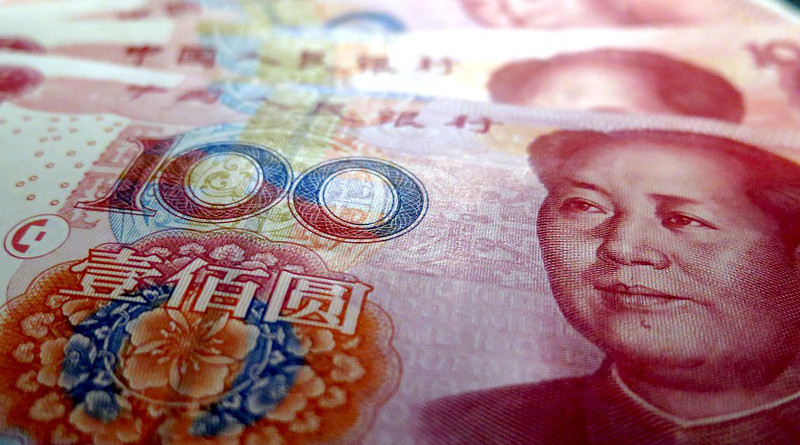Toward China’s Fiscal And Tax Reforms – Analysis
As the Chinese economy is moving toward a soft rebound, it is about to launch large-scale fiscal and tax reforms to facilitate and boost growth for years to come.
Citing a Japanese “financial journalist,” the US-based Newsweek reported recently that “China’s economy not only expanded less than reported but also contracted in 2023.”
Apparently, Newsweek thought it had a scoop. Stunningly, dismissing all growth figures of China by global development banks, the story relied on Tamura Hideo of Sankei Shimbun. The daily represents Japan’s ultra-nationalist far-right, which seeks remilitarization and denies Japan’s atrocities in World War II.
It was a déjà vu all over again. Last summer, when Shanghai began to rebound, Newsweek reported that the megacity had turned into a “ghost town.” Then its economic authority was a geopolitical hitman, who recently popped up again at a Texas border rally blaming the Hispanic migrants, based on conspiracy theories, for the United States’ problems, according to the very same Newsweek.
There is a pattern of methodical obfuscation among the world’s leading news media. Economic reporting is increasingly subject to geopolitical agendas.
Toward a new fiscal regime
Without substantial support to support consumption, consumption growth would likely be moderate in 2024, given the current outlook for real estate and confidence. Hence, the impending push for a proactive fiscal policy, coupled with a new round of fiscal and tax reform, to boost consumption growth. Recently, this was coupled with the biggest-ever cut to key mortgage rate by China’s central bank, to bolster housing market.
Despite the real estate downturn, China met its economic growth target last year. With growth of 5.2 percent year-on-year, fiscal revenue exceeded $2.9 trillion in 2023, an increase of 6.4 percent from the previous year.
Since 2012, as part of the overall plan of deepening reform, China has embarked on a journey to establish a modern public finance system. In the past decade, the fiscal and tax reform has been gradually moving toward a reformed system. Now these efforts are garnering greater momentum, as evidenced by the key economic priorities of the Central Economic Work Conference in December.
Since January, there has been increasing international interest in China’s reform efforts, in particular to rethink the incentives it gives its local governments to support the economy. Meanwhile, top leaders are mapping out biggest reforms for fiscal policy in a decade. Reportedly, upcoming reforms are expected to lay the foundation for the new institutional fiscal regime.
Challenging balancing act
In the past four decades, China’s impressive growth record has dramatically improved living standards and eradicated extreme poverty. But like in other industrializing countries, the growth has been accompanied by widening imbalances. Current challenges have their origin in the 2008-09 Chinese economic stimulus of the $586 billion package — whose aim was to minimize the impact of the US subprime crisis-induced global financial crisis.
The stimulus did boost growth, helping the Chinese economy to recover from 6 percent to over 10 percent by mid-2009, and drive 50 percent of global growth, thus supporting the ailing West.
However, the stimulus also contributed to a great surge in local government debt. In particular, investment in infrastructure and housing has fostered rising debt among property developers, local governments, and local government financing vehicles.
Over the medium-term, the goal of the impending fiscal policy reform is to improve the risk sharing mechanisms between the central government and the local governments, to close the fiscal gaps at the local level and reduce local governments’ dependence on land sales, as the International Monetary Fund (IMF) recently reported.
The effort at fiscal consolidation is based on the reduction of off-budget investment and the execution of broad social security and tax reforms, including greater reliance on personal income taxes, to foster equity.
After three years of deleveraging in the ailing property sector, Chinese economy is moving toward a soft landing in 2024 and normalization by 2025. But China is neither Japan in the 1990s nor the United States of 2008/09. Despite large-scale deleveraging in the sector, home buyers in China are actually leveraging up, as Singaporean multinational bank DBS reports.
In other words, Chinese consumers do not lack purchasing power. They are able to spend, and increase their spending. But being cost-conscious, they have been cautious to do so, consuming moderately and saving excessively. There is thus a great need for broad structural reforms and adequate support to cushion the impact of the adjustment in the property sector – and to unleash the pent-up consumption capacity.
China will maintain fiscal expansion this year to spur an economic recovery, vice finance Minister Wang Dongwei said recently, reinforcing market expectations that government will boost public spending to lift growth.
Secular long-term potential
China’s structural potential remains remarkable. In the West, middle-class real income has stagnated for four decades. In China, there are 400 million people in the middle-income group, and that number could double to 800 million in the next decade. Urbanization will likely create huge demand in sectors such as housing, education, medical and elderly care.
By 2030 an additional 240 million rural residents in China could migrate to cities. Among other things, that translates to great secular potential for investments to upgrade urban transportation and telecom infrastructure. That means a substantial opportunity for domestic and global financial institutions.
By contrast, in the West, trade wars and geopolitics, coupled with xenophobia and unwarranted wars, have proved to be a costly distraction from requisite structural reforms in home markets.
What the world economy needs is successful growth transformation in China – and large-scale economic reforms within rather than futile foreign interventions by the West.
The original version was published by China Daily on February 26, 2023.

